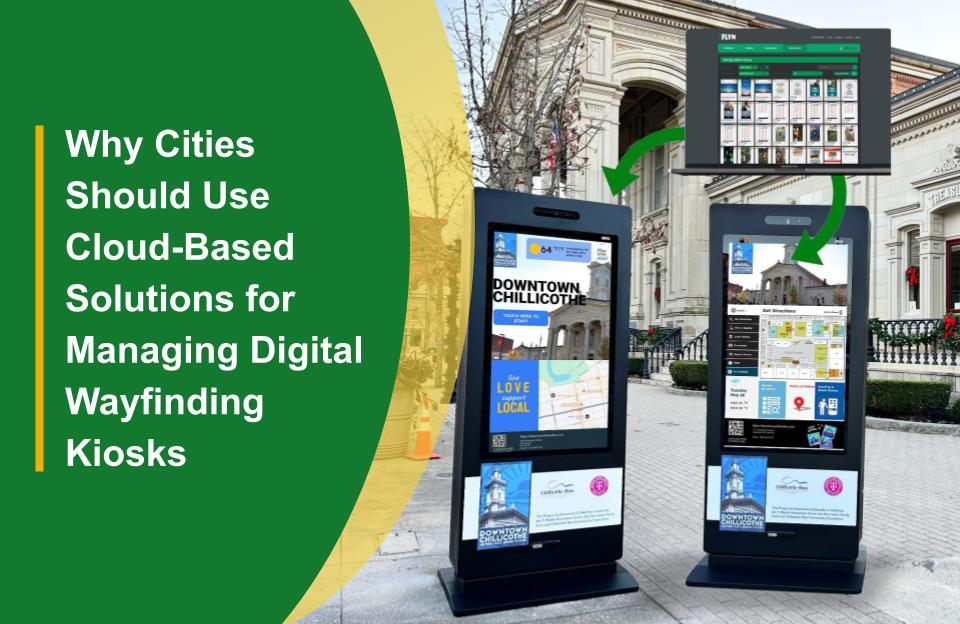In an era of smart cities and digital transformation, traditional methods of managing wayfinding kiosks are no longer sufficient. Cloud-based solutions offer cities a modern, efficient, and scalable way to manage their digital wayfinding infrastructure. These systems provide real-time updates, centralized control, and significant cost savings, making them an essential component of urban planning.
Real-Time Updates for Dynamic Information
Cloud-based wayfinding kiosks allow instant updates across all units in the network. This capability ensures that information such as maps, public transit schedules, and emergency alerts is always current. During events, emergencies, or changes in infrastructure, cities can immediately update kiosk content, improving user experience and public safety.
Centralized Management for Simplified Operations
With cloud technology, all kiosks can be managed from a single dashboard, regardless of their physical locations. Urban administrators can monitor performance, update software, and deploy new content without needing on-site maintenance. This centralized approach reduces downtime and ensures consistent performance across the city.
Cost-Effective and Scalable Solutions
Cloud-based systems eliminate the need for expensive hardware upgrades and on-site IT infrastructure. Cities can scale their wayfinding networks by simply adding more kiosks to the cloud, without significant upfront costs. This flexibility allows municipalities to adapt to growing urban demands while keeping budgets in check.
Enhanced Security and Data Insights
Data security is a priority for cloud-based solutions, which typically feature robust encryption and compliance with privacy standards. Additionally, these systems collect valuable usage data, such as popular destinations, peak usage times, and ad engagement metrics. This information helps cities optimize content and improve the effectiveness of their wayfinding solutions.
Sustainability and Energy Efficiency
Cloud-based management supports energy-efficient operations by reducing the need for physical servers and on-site maintenance. Additionally, remote monitoring helps identify kiosks with technical issues, reducing energy waste and minimizing environmental impact.
A Smarter Future for Urban Connectivity
Integrating cloud-based solutions into digital wayfinding systems aligns with the broader goals of smart cities. These systems enhance connectivity, improve user engagement, and create a responsive urban environment that adapts to residents’ and visitors’ needs.
Closing Remarks
Cloud-based solutions are revolutionizing the way cities manage digital wayfinding kiosks. With their ability to provide real-time updates, centralized management, scalability, and enhanced security, these systems are a vital tool for modern urban planning. Cities that adopt cloud-based management will be better equipped to create efficient, connected, and vibrant public spaces.

